Case Studies.
Add Case Study
Our Case Study database tracks 18,927 case studies in the global enterprise technology ecosystem.
Filters allow you to explore case studies quickly and efficiently.
Download Excel
Filters
-
(5,794)
- (2,602)
- (1,765)
- (764)
- View all
-
(5,073)
- (2,519)
- (1,260)
- (761)
- View all
-
(4,407)
- (1,774)
- (1,292)
- (480)
- View all
-
(4,158)
- (2,048)
- (1,256)
- (927)
- View all
-
(2,488)
- (1,262)
- (472)
- (342)
- View all
- View all 15 Technologies
- (1,732)
- (1,626)
- (1,605)
- (1,461)
- (1,423)
- View all 42 Industries
- (5,782)
- (4,114)
- (3,091)
- (2,780)
- (2,671)
- View all 13 Functional Areas
- (2,568)
- (2,482)
- (1,866)
- (1,561)
- (1,537)
- View all 127 Use Cases
- (10,333)
- (3,499)
- (3,392)
- (2,982)
- (2,593)
- View all 9 Services
- (503)
- (432)
- (382)
- (301)
- (246)
- View all 737 Suppliers
Selected Filters
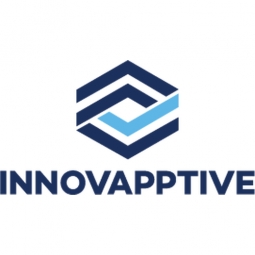
|
Hess Corporation's Productivity and Operational Efficiency Improvement with mInventory
Hess Corporation, a global energy producer, was in need of a materials management technology that could enhance accuracy and efficiency across their entire supply chain. This included connectivity to onshore warehouses and yards, as well as remote locations such as ships and offshore platforms. The company was keen on transitioning to paperless operations and required a system that was user-friendly and adaptable to minor configuration changes as per business needs.
|
|
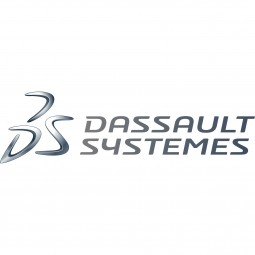
|
Branch Technology: Achieving 100% Accuracy in Modeling with 3DEXPERIENCE Cloud Platform
Branch Technology, a Tennessee-based company that designs and manufactures commercial facade systems, was in need of a software solution that could process complex geometries to produce a multitude of components for various digital fabrication methods. The company was inspired by nature's efficient cellular structures and had developed a construction-scale, freeform 3D-printing technique and direct digital manufacturing approach called cellular fabrication (C-Fab®). However, they were facing challenges in implementing a digital process that could eliminate digital fabrication bottlenecks, be easily updated, and yield high fidelity parts. The company was in search of a solution that could help them imagine, compose, and construct complex design structures with ease and precision.
|
|
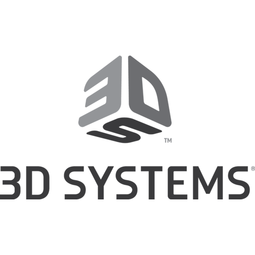
|
Digital Transformation in Orthotic and Prosthetic Design and Manufacturing
The orthotics and prosthetics (O&P) industry has been largely dominated by manual craftsmanship. The challenge was to introduce digital technologies to orthotic and prosthetic design and manufacturing to support manual processes with digital workflows and tools. The two main challenges for orthotists and prosthetists were the production of the correct function and the suitability to the patient’s size and strength ratio, and developing an interface to the human body that can transfer and absorb force without causing chafing or similar irritations. The traditional workflow to produce a prosthetic begins with molding the body part with plaster, which maintains a few advantages over direct 3D scanning of the patient's limb. However, due to the high degree of manual work and experience orthotists and prosthetists bring to their work, it is nearly impossible to exactly replicate a good outcome.
|
|
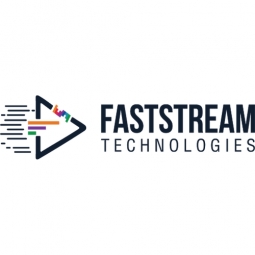
|
SMART PARKING SOLUTION
At Faststream, we accompany our clients in seeking an all-in-one Smart Parking system where data needs to be accurate and made available in real-time. Our smart parking solutions are sustainable and user-friendly as well as technically and financially feasible. It involves using low-cost sensors, real-time data collection, and mobile-phone-enabled automated payment systems. The parking solution benefits involve optimized parking, reduced pollution, real-time data, and trend insight, integrated payments, and decreased operational costs.
|
|

|
InterDigital Remote Augmentation In Multipoint Telepresence
The ability to enrich remote live video by virtual information does not exist in standard teleconferencing systems yet, partly because transmitting real-time captured 3D information over network has some disadvantages. For example, bandwidth requirements of 3D information are much higher than normal video. Also, in order to generate an accurate 3D representation, the environment must be captured from several directions. Normally, users are accustomed to pointing a video camera so that it captures only those parts of the environment that the user wants to show to remote participants of the video conference.
|
|

|
Improving Refinery Safety and Efficiency with AI at the Edge
Historically, Texmark's operations and maintenance teams monitored equipment manually and through wired sensors at a significant cost of dollars and man-hours each year in inspecting equipment on site.Wanting to act quickly and execute on this multi-year plan, Texmark turned to Deloitte to deliver an end-to-end IIoT implementation in late 2017. Over the course of the next two years, Deloitte coordinated the following partners for the project:1. National Instruments to outfit pumps with sensors that collect operational data2. Hewlett Packard Enterprises to enable deployment at the edge3. OSIsoft PI to aggregate the sensor data from the NI sources4. SparkCognition™ to predict impending pump failures5.Flowserve to help develop the model and data flow architecture 6. PTC ThingWorx to create a mobile-supported interface
|
|

|
Volvo Group Delivers Digital Thread Through Lens of Augmented Reality
In today’s rapidly changing market, customization has become the new normal. This presents new quality assurance challenges as product complexity and unique configurations increase in volume and rate of change.Volvo’s engines are very sophisticated with 4,500 different engine information variants for just one plant and for 13,000 variants for the full plant for referencing.Training new operators on the complex inspection procedures takes five weeks, which adds to the overall cost of quality.
|
|
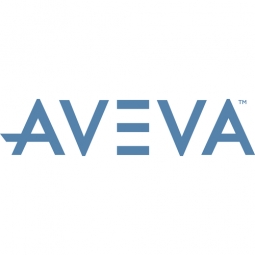
|
Nava Raipur: Building a Greenfield Smart City
The challenge was to construct a world-class greenfield smart city in Nava Raipur, the new capital of Chhattisgarh state in India. The goal was to create an environmentally sustainable city that would meet the needs of its citizens and businesses through optimized solutions. The city was to be designed with high livability in mind, focusing on operational efficiency in civic amenities and planning systems. The city planners aimed to enhance the quality of life of its residents through safe, efficient, and sustainable civic amenities and planning systems. The challenge was not just to build a city, but to build a smart city that would serve as a model for future urban development in India.
|
|

|
EDF's Transformation: Enhancing Employee Experience through IT Modernization
EDF, a major UK utilities company, was grappling with a highly customized service management system that was largely manual, with limited potential for automation. This made it difficult to predict or prevent system failures and provide a resilient service. The company's IT system for incident handling was purely manual, leaving no room for modernization. EDF wanted to serve its business and residential customers better by improving the response time to rising energy demands. To achieve this, the company needed to provide its employees with the right tools for improved productivity, better collaboration, and an enhanced IT experience at a reduced cost to serve.
|
|

|
Powering the Future of Smart Cities with IoT Smart Lighting: A Case Study on SSE's Mayflower Smart Control
Mayflower Smart Control, a part of SSE Enterprise Contracting, was tasked with providing a green solution for the management of highway lighting and illuminated equipment. The company's connected devices offered a range of smart city applications, including environment and weather monitoring, refuse collection assistance, parking, road surface temperature sensing, and traffic counting. However, they were running restricted operations with a single local network SIM card across its connected product range. They identified the need for a centrally controlled and monitored system for public lighting installations, which would offer enhanced visibility, predictive maintenance, and a green solution for energy consumption.
|
|
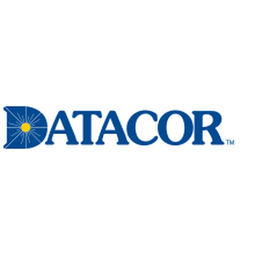
|
Increasing Profitability through IoT: A Case Study on Whitaker Oil Company
Whitaker Oil, a fourth-generation, family-owned chemical and composite materials distributor, was facing a significant challenge in managing its complex enterprise. With multiple companies and facilities under its umbrella, the company needed a business software solution that could help them manage and measure profitability at the transaction level. The solution needed to be specifically designed for the chemical industry, considering the unique requirements and challenges of this sector. The company was looking for a solution that could capture every transaction, manage complex batching and blending, inventory management, purchasing, safety, price management, order entry, invoicing, and financial statements.
|
|

|
Video surveillance and video capturing
Video surveillance and video capturing are accessed in a limited location from a central setup for surveillance. Supphttps://www.faststreamtech.com/ose user places a camera in one particular room which is to be a monitor for security purpose if the user wants to go to the remote location and still he wants to monitor that same room for security, and then the user can make use of remote surveillance system by use of mobile through internet facility.Surveillance, depending on the situation, may also involve a serious invasion of the privacy of the persons filmed by the cameras. It is therefore important when planning, installing and operating such systems to pay special attention to the rules on the protection of privacy. So mobility application makes it easy to stay connected to your surveillance system when you can’t physically be on location.We develop the video-based mobile application, which is used to receive the live video stream from the external camera device and also internal camera device. The application developed for both Android and iOS mobile device platforms.
|
|
_30.jpg)
|
Dubai Aerospace Enterprise Enhances Efficiency with GE Digital’s Asset Transfer System
Dubai Aerospace Enterprise (DAE) was faced with the challenge of managing over 2 million records related to its $16B USD fleet of 425 advanced Boeing, ATR, and Airbus aircraft leased to more than 108 operators in 52 countries. The sheer volume of maintenance documentation, compliance, inspection audits, and lease transfers with airline customers was overwhelming. The data was siloed across multiple systems or locations, creating bottlenecks and inefficiencies, which impacted the delivery of information to customers. DAE had digitized part of its information, but the platform was outdated and discontinued in terms of future development and support. This meant more time and effort required to respond to customers with accurate information. Additionally, the security of hundreds of thousands of paper records was at risk in the event of a disaster such as a flood or fire.
|
|
---nasdaq--amzn_14.jpg)
|
AWS helped Haven power increase their database ability
Haven’s focus on customer service has fuelled a rapid level of growth since its launch in 2006. For its first five years, the company ran on a hybrid infrastructure that was made up of a mixture of onsite and offsite servers. Haven’s systems were not as flexible as it would have liked, with limited support for technology testing and development. The company lacked a complete business continuity and disaster recovery (DR) plan, and needed a technology infrastructure that could both keep up with demand and help drive further growth.Haven had three options: getting a DR solution through the data center of its parent company, Drax Group; going through a third-party re-location disaster recovery service; or moving to the cloud.
|
|

|
Qualcomm Wireless Reach Helping High School Correspondence
• According to Renaissance High School, many Japanese high school students are dissatisfied with the traditional curriculum and prefer to study topics that are of personal interest or related to a potential profession.• Without a high school diploma, students have greater difficulty landing steady jobs, and the full-time employment rate of high school dropouts is relatively low, putting a strain on the nation’s social welfare system.1• Many Japanese high school students are dissatisfied with the inflexible, uniform content of their education and often suffer from loss of motivation.• In Japan, the need for digitization of education has been discussed for a long time; the government has just begun to focus on introducing digital textbooks.
|
|

|
Plug Computer
Software tasks:Port U-Boot 2011.06 (and 3.5.9 by Marvell)Port Linux kernel 3.1.1 (and linux-feroceon_5_1_3_KW by Marvell)Create Debian6.0-based root file systemIntegrate and adapt FreeNAS-based graphic user interfaceIntegrate Asterisk
|
|
---nasdaq--amzn_14.jpg)
|
The Dow Jones' Solution on AWS
Investors use Dow Jones to learn about what’s happening in financial markets throughout the world. “Our mission is to shine a light on dark corners of the world, focusing on news that impacts decision making,” says Stephen Orban, Chief Information Officer & Global Head of Technology. The company relies on cutting-edge technology to keep its customers as up to date as possible on the latest news.In Asia, about 12.8 million people use WSJ.com, which generates about 90 million page views each month. When the lease on its Asian data center ran out in early 2013, the company needed to find an alternative that would help its developers focus more on revenue-generating applications instead of on data center maintenance. Dow Jones also wanted to reduce latency for its Asia-based customers—and it wanted to avoid delays for acquiring and configuring hardware. “My preference is to have my team build products rather than running data centers, Orban says. “Now that data center is a commodity, that’s exactly what they’re able to do.”
|
|
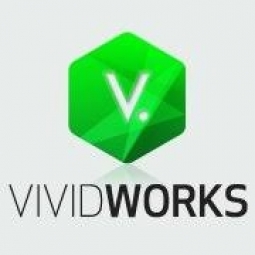
|
HOW AR HELPS LINDSTRÖM TO SELL ITS DESIGN MAT RANGE
The mats make a huge difference in how people view the company’s premises and the company itself. However, when the mats should be chosen, many people find it difficult to visualize how the mats would look in the premises.Lindström’s mat selection is also so large that viewing them all, let alone comparing alternatives, is challenging for many customers. In addition to the actual product selection, the sales consultants usually spend significant time in the back-office tasks like calculating pricing and data entry.
|
|
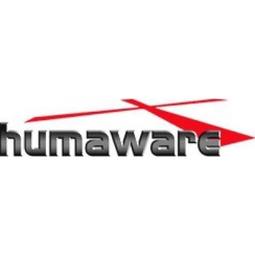
|
Cooperation with VR FleetCare for predictive analytics
Bogies are the most significant components of the rail fleet in terms of lifecycle costs and traffic safety. In addition to creating significant cost savings for the rail fleet owners, data-driven maintenance will enhance safety and the usability of the rolling stock. The predictive maintenance capability will improve reliability of the trains, cost-efficiency and passenger comfort. Train traffic will operate more reliably when it is possible to predict rolling stock malfunctions before they cause disruptions in traffic.
|
|

|
Manage HVAC systems to optimize performance and save up to 40 percent
Seeking to add value beyond pump efficiency, Armstrong wanted to help customers address the issue of predictive maintenance through continuous learning to improve efficiency and by sharing best practices across industries and buildings.
|
|

|
IFFCO Boosts IT Performance and Innovates Agriculture with Oracle Cloud
Indian Farmers Fertiliser Cooperative Ltd. (IFFCO), the world’s largest manufacturer and marketer of fertilizers in the cooperative sector, was facing several challenges in its quest to innovate and improve the livelihood of farmers in India. The organization had recently launched a new product, nano urea, which brought new demands to IFFCO’s cloud computing needs. The organization needed a reliable cloud vendor to support the processes of 6–7 new manufacturing plants during the upcoming year, enhancing its production capability 300–350 million bottles of nano urea to meet increasing demand. IFFCO’s cloud adoption was driven by a need to innovate. The organization wanted capabilities for a dynamic business that can adapt to the changing needs of the market while growing fast. However, it was inhibited by rigid on-premises data center deployments and the overhead of maintaining legacy systems. IFFCO wanted to apply the elasticity and availability of cloud for improving overall performance of applications at lowest possible operational overhead. Lastly, IFFCO needed to provide the benefits of its technology to all its stakeholders, including employees, members, transporters, and farmers, some of whom have limited literacy. To accommodate all stakeholders, IFFCO wanted to add a voice interface to its applications.
|
|

|
How an Edge-to-Cloud Data Platform Works
At Litmus, the biggest challenge the customers face is access to the data they need to fuel machine learning and analytics models. Large scale manufacturers come to Litmus looking for the fastest way to connect to their assets and send data to the cloud. Companies not only need to send data to the cloud to create machine learning models, but they also need to deploy those models back at the edge with a unified edge-to-cloud platform.
|
|

|
Prevent Process Inefficiencies with Automated Root Cause Analysis
Manufacturers mostly rely on on-site expert knowledge for root cause analysis. When the defective product is sent to lab for analysis, it is laborious and always a post-mortem one. Manufacturers that collect data from IT and OT also need a comprehensive understanding of a variety of professionals to make sense of it. This is not only time consuming, but also inefficiencient.
|
|

|
Leveraging IoT for Predictive Maintenance in Healthcare: A Case Study of Bluewater Health
Bluewater Health, a Canadian healthcare facility with hospitals in Petrolia and Sarnia, Ontario, faced several challenges related to facility management and maintenance. The organization, which includes a 10-year-old redevelopment and addition to a 60-year-old building and a 110-year-old building in the midst of redevelopment, had to ensure the optimal performance of its operating rooms’ heating and cooling systems, mechanical equipment, and utilities. The facility also had to be prepared for power outages and ensure the readiness of emergency generators. Furthermore, the hospital had to manage its limited resources effectively to prioritize patient care. The challenge was compounded by the fact that Bluewater Health spanned two locations with varying infrastructure, making data consolidation a significant issue. The hospital also aimed to be more proactive in repairs and efficiencies, moving from preventative maintenance to predictive maintenance.
|
|
---nasdaq--amzn_14.jpg)
|
Reducing Simulation Cost to Become More Competitive
Like many aerospace engineering firms, TLG employs STAR-CCM+, a leading industry application, to perform CFD simulations. TLG uses the application to conduct aerodynamic simulations on aircraft and predict the pressure and temperature surrounding airframes. However, the company wanted to reduce the costs associated with running simulations. “We were using a cloud provider to host our simulations, but the cost per simulation was high,” says Andrew McComas, engineering manager at TLG Aerospace. “Running a typical simulation was costing us hundreds of dollars per case, and there may be hundreds of cases per project.”TLG also wanted the ability to scale its high-performance computing (HPC) applications to take on larger simulations. “The trend in our industry is toward doing more complex simulations that require more compute resources,” McComas says. “But with the internal HPC cluster we were using, we were limited as far as the maximum size problem we could run. We were limited to a small number of nodes and couldn’t allocate enough memory to run large-scale problems.”Because it wanted to reduce costs and gain scalability, TLG decided to search for a new cloud provider.
|
|
---nasdaq--amzn_14.jpg)
|
Amazon helped an American energy company
Based on a program need to build a collaborative data repository for the Marine Hydrokinetic Program, NREL wanted to build a secure, yet collaborative, platform to collect, curate, store, and share moderately sensitive data, which focuses on water power research. As part of this effort, NREL built an environment with a Moderate Authority to Operate (ATO) accreditation from the Federal Information Security Management Act (FISMA). With a FISMA Moderate ATO, NREL maintains all mandated cyber security requirements, while gaining the ability to manage and share moderately sensitive data with other government agencies and research entities.As it prepared to design the new infrastructure, NREL knew it needed agility and flexibility. “Our goal was to make it easy for analysts and scientists to access and publish data, but we didn’t want to spend our time managing infrastructure to facilitate that. We want to focus on the product—the data itself,” says Webber. For example, NREL uses a dev-ops team approach focused on the needs of the client and ensures that the research metadata is optimized for accessibility. “We need to make sure the right descriptors and keywords are there so we can easily connect our users to all the other research sites,” says Jon Weers, senior web strategist at NREL. “If the data isn’t discoverable, it’s not useful to researchers.”
|
|

|
Secure Email Signature Management
Every day enterprises send out thousands of emails but can struggle to maintain visual and legal consistency in email signatures and many don't seize the opportunity to include marketing campaigns in company email signatures. With a rapidly accelerating number of emails being sent from mobile devices and websites, email signature management has entered a new level of complexity and is now also a matter of enterprise security on emails.
|
|
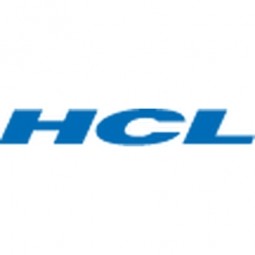
|
Enabling Business Efficiency for Medical Technology Providers
As the company expanded into new geographies and areas of therapy, existing patient management platform performance was unable to support future business needs. This resulted in end user satisfaction being compromised.Some of the business challenges were:Value based care delivery: Robust platform to support wide array of devices, data, and applications that manage patient data with utmost security. This facilitates the delivery of customised care to end-users, increasing the patients’ adherence to medication.Business efficiency: Integration with legacy enterprise applications to ensure seamless exchange of customer, product, and sales data between BU’s as well as enabling KPI tracking at various enterprise levelsShorten time to market: Ability to run complex analytical models and data science functionality on the data collected from multiple sources to streamline development cycles.
|
|

|
Conveyor Belt Monitoring
In a smart environment of management, control and industrial automation, one of the key elements to anticipate failures and increase productivity is to be able to monitor the status and use of conveyor belts of any kind of sector, whether it is for logistics or manufacturing.
|
|

|
Innovative Cloud Solution Boosts Generali Vitality's User Engagement and Retention
Generali Vitality, an innovative platform promoting a healthy lifestyle, faced a challenge in expanding its user base beyond Germany, Austria, and France. The company aimed to become a lifetime health partner to its members by offering a best-in-class user experience across all user journeys and channels. The goal was to increase user engagement and retention with a unique product feel. However, the challenge lay in optimizing and introducing new features continuously without lengthy product development and release cycles. The company needed a solution that could scale to tens of thousands of users, integrate multiple rewards partners, and be localizable for multiple markets and languages. To achieve this, Generali Vitality needed to collaborate with a partner that could provide a tailor-made solution.
|
|

